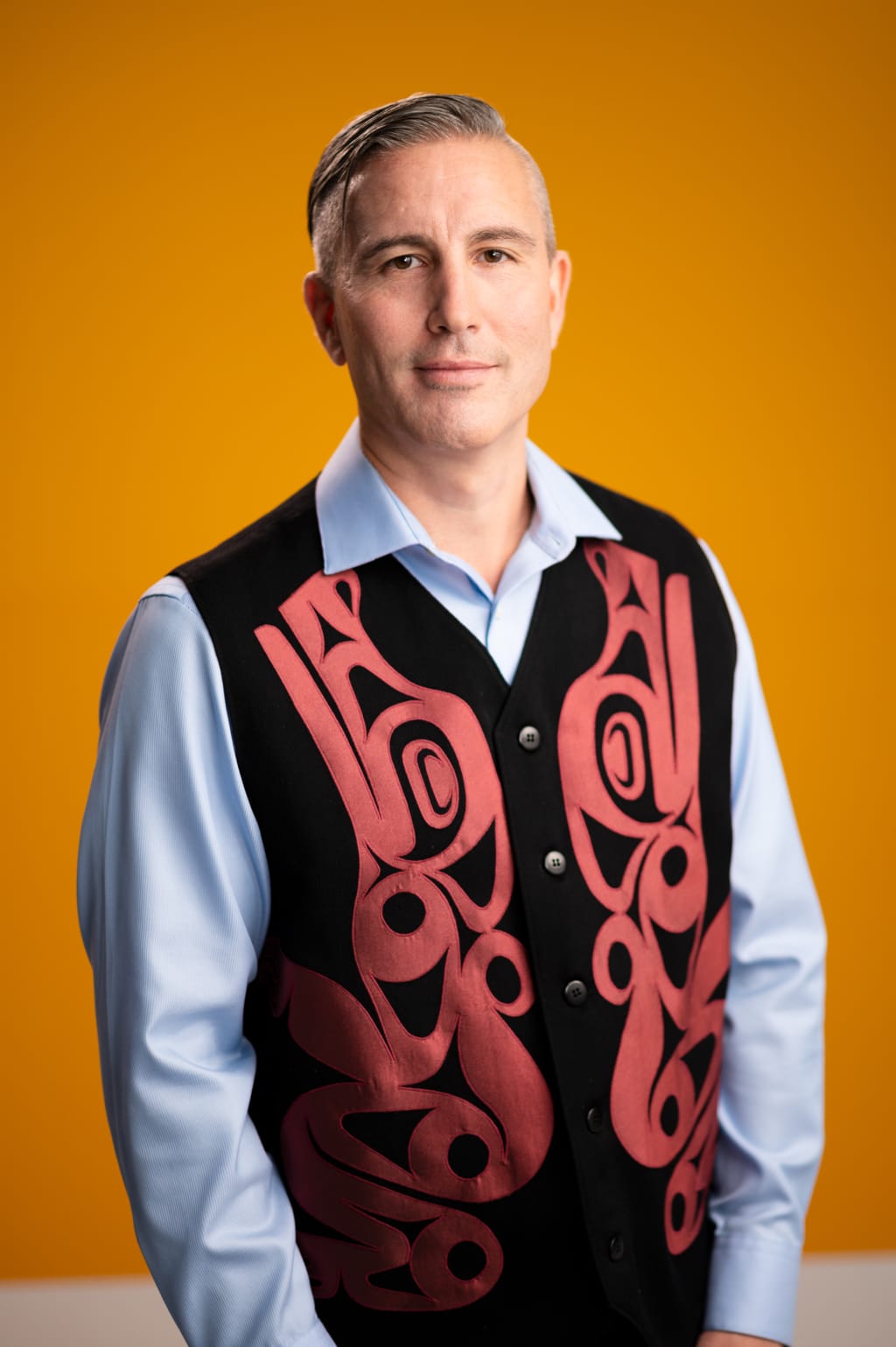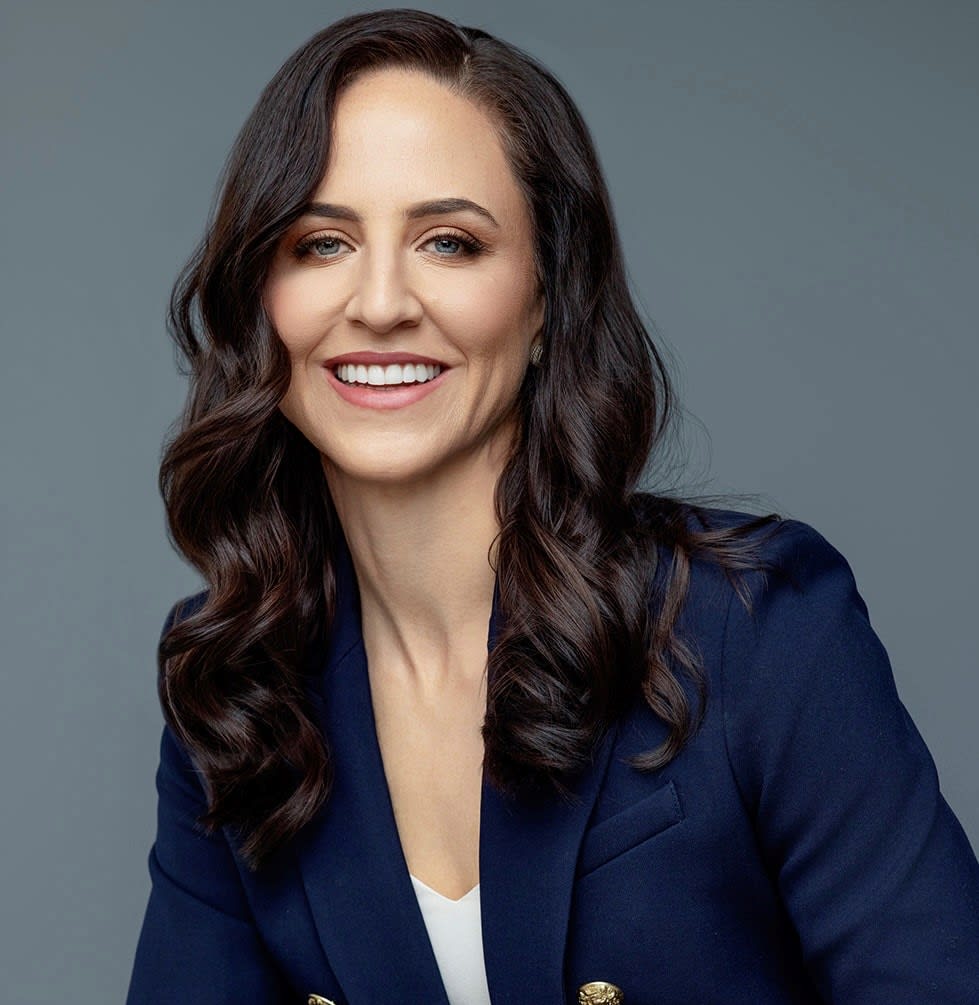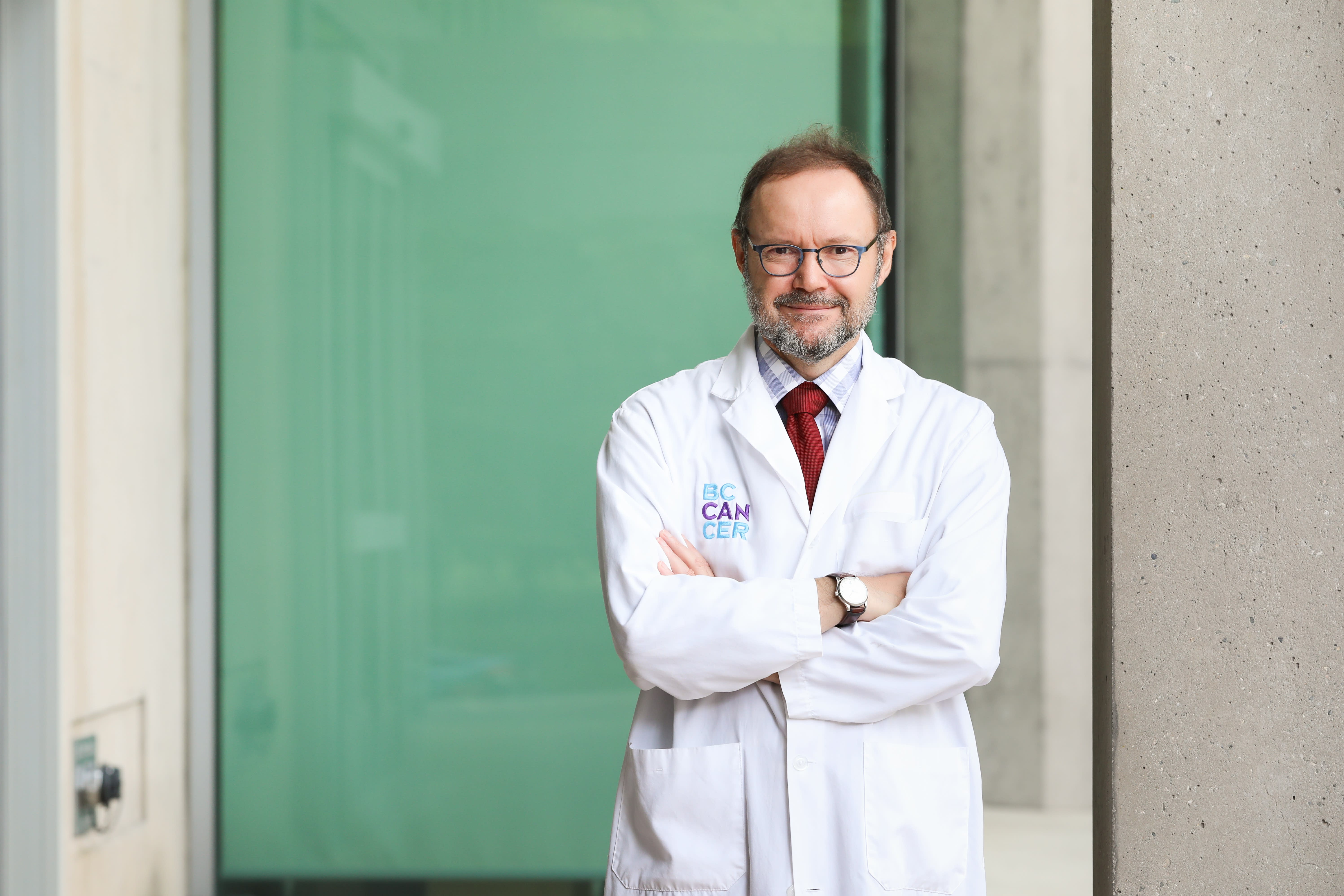Overcoming Indigenous Barriers to Care Benefits Us All
February 4, 2023
Found in Access, General, World Cancer Day

Warren Clarmont is BC Cancer’s Executive Director of Indigenous Health & Cultural Safety and a member of the Gitanmaax Band of the Gitxsan First Nation
It’s no secret, or at least it shouldn’t be, that First Nations peoples face disproportionate cultural, financial and logistical barriers to care across our province. For anyone not part of these communities, it can be easy to think the problem only impacts the Indigenous minority. When BC Cancer is able to overcome barriers to care, the benefits aren’t just felt by underserved populations. They’re felt by everyone in the provincial cancer care system.
Beginning with trust
Let’s look at the effects of just one of the key barriers to care that Indigenous people face: trust in the cancer care system.
With recent history that includes colonialism and residential schools (history that most non-Indigenous peoples are only now beginning to understand) it’s obvious why mistrust exists. What isn’t obvious is the resulting participation gap.
First Nations peoples comprise about 6% of B.C.’s population. As BC Cancer pursue precision treatments that rely on a clear understanding of the realities of cancer rates, prevention and education, none of us can afford a 6% information gap. We’re making systemic resource, research, and logistical decisions for the entire province based on incomplete data.
In a data linkage project between BC Cancer and the First Nations Health Authority, our findings show significant disparities in breast screening participation across the province between First Nations peoples and other B.C. residents. This disparity is one of the reasons why Indigenous cancer cases are later-stage diagnoses where the disease is much harder to treat.
It is also why most Indigenous patients aren’t aware of the supports available to them. Like many underserved populations in the province, they only learn about them once they’ve entered the system. By then, it’s often too late, and can lead to negative care experiences. In extreme cases, I’ve seen patients refuse to go back to complete treatment.
What impacts one impacts us all
Solving the trust barrier won’t happen overnight, but the more this relationship improves, the better it is for everyone. Open collaboration with Indigenous communities and organizations increases our understanding not just of cultural issues, but logistical, geographical, and financial barriers too.
The solutions and programs we are building to address these issues do more than just help the Indigenous population. They become models for all remote, rural and underrepresented communities across the province. In other words: what we can solve here, we can adapt everywhere.
Every time we shy away from overcoming Indigenous barriers to care, we’re leaving a more efficient and effective cancer care system on the table. One that costs less, includes everyone, and advances faster.
Slow progress in real time
The good news is that we’re making headway.
Through the Indigenous Patient Support Program, we are engaging with these communities, learning more, and beginning the difficult work of building trust. The BC Cancer Foundation’s Beyond Barriers Patient Relief Fund has expanded in 2023 not just for Indigenous patients but for people who live in rural and remote areas across the province; providing financial, and travel support via gas and food cards, resource assistance, small equipment purchases necessary for recovery, and more.
The San’yas Indigenous Cultural Safety training course teaches BC Cancer staff about the history, cultural significance and reality of inequalities facing Indigenous peoples in Canada, and why healthcare providers understanding that history and its impact on access to care translates to better cancer outcomes for their patients.
BC Cancer is undertaking new research initiatives to better our understanding of Indigenous cancer outcomes in B.C. and we are working to improve early detection through access to culturally-safe screening programs. One initiative that will contribute to this is the launching of a provincial screening campaign with the First Nations Health Authority that seeks to increase participation in colon, breast and cervical cancer screening amongst First Nations peoples.
These are small but important steps, and they’re bearing fruit.
A shifting conversation
Sparked by the broader public awareness of the history of residential schools these past few years, I’ve seen a positive change in people’s attitudes and a willingness to learn.
In Victoria, BC Cancer staff started their own cultural safety committee; a coalition of the willing so to speak. Even some oncologists are becoming more open to conversations around traditional medicines, and allowing them to be part of the treatment protocol alongside regular courses of chemo-, radio- and immunotherapy.
BC Cancer has also hired a new Indigenous Design and Cultural Safety lead that will advance support the development of cultural safety plans for our cancer centers. The Foundation is playing a big role in raising funds for this work with donors truly helping to make a difference.
That’s why I’m excited for the next five years. The work is just beginning, but the moment and environment are right.
If we take advantage of it, together, the reward will be a cancer care system that works better for us all.
Learn how you can help the BC Cancer Foundation go Beyond Barriers.
Barriers to accessing cancer care in B.C. can take a number of forms – geographical, socioeconomic or cultural – and removing these barriers will take all of us. This World Cancer Day, the BC Cancer Foundation is encouraging British Columbians to look Beyond Barriers to care, to mobilize, and to support solutions.


